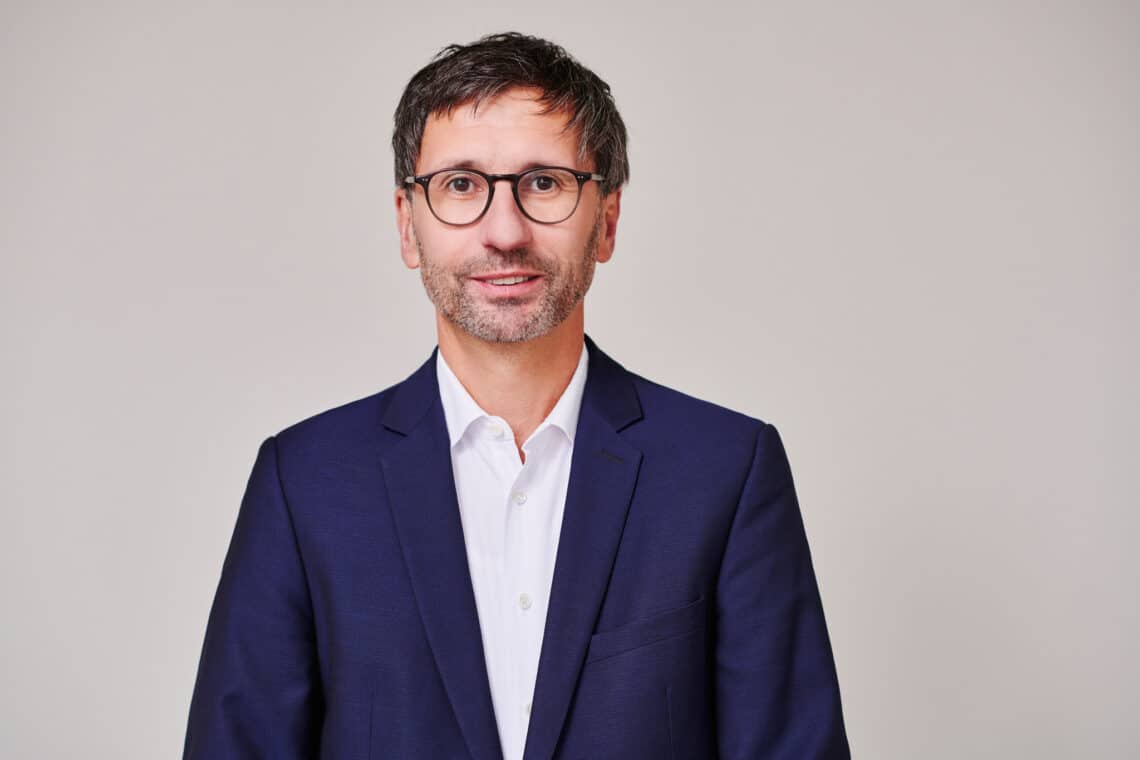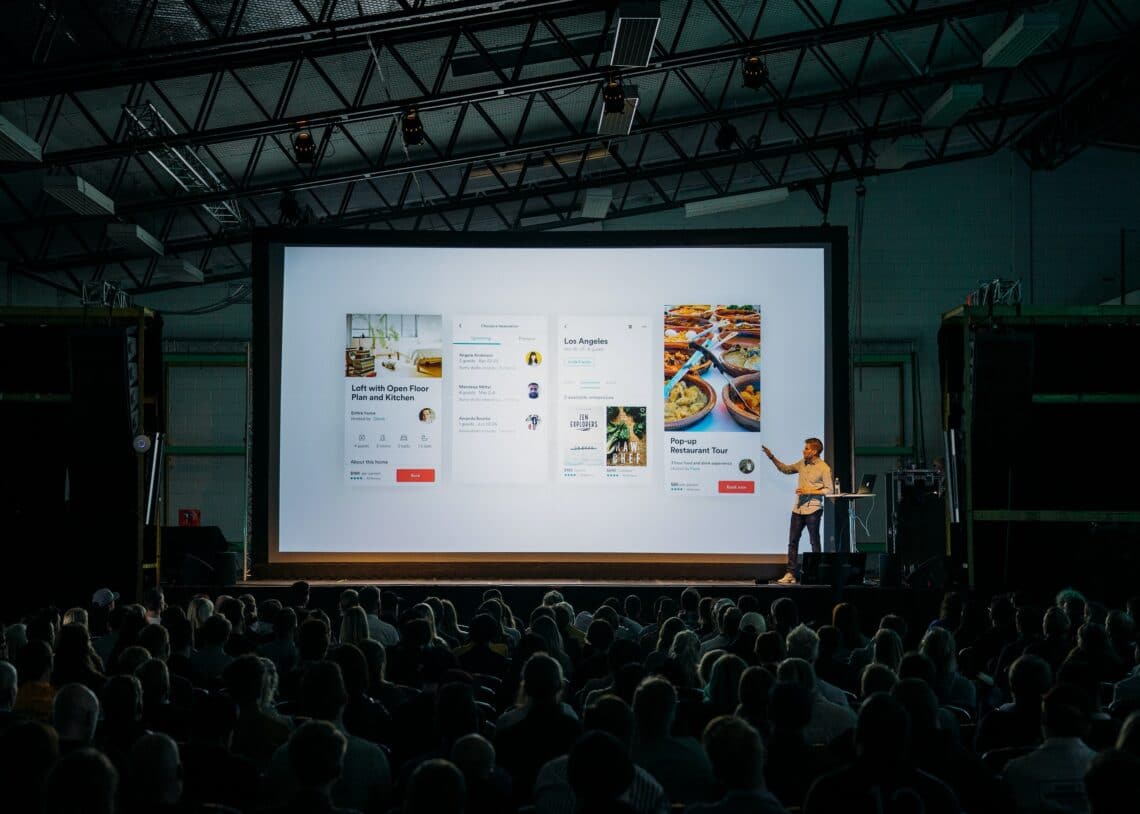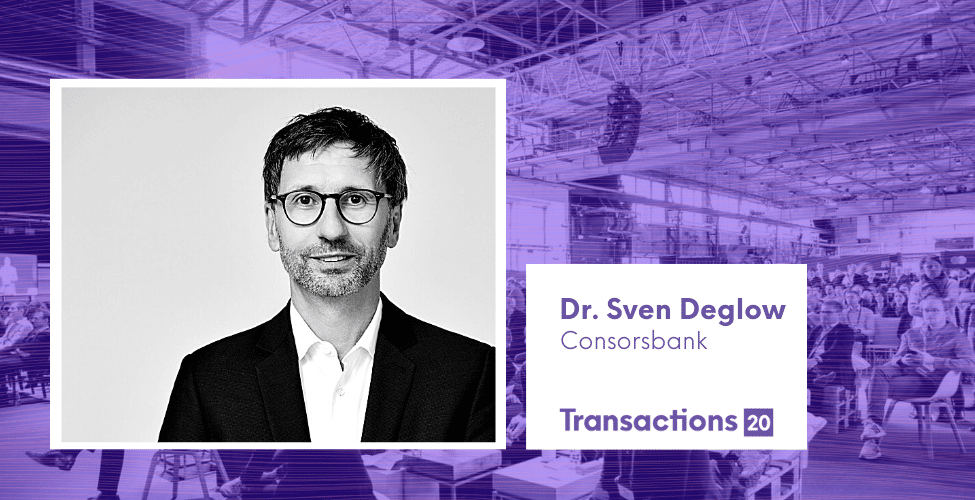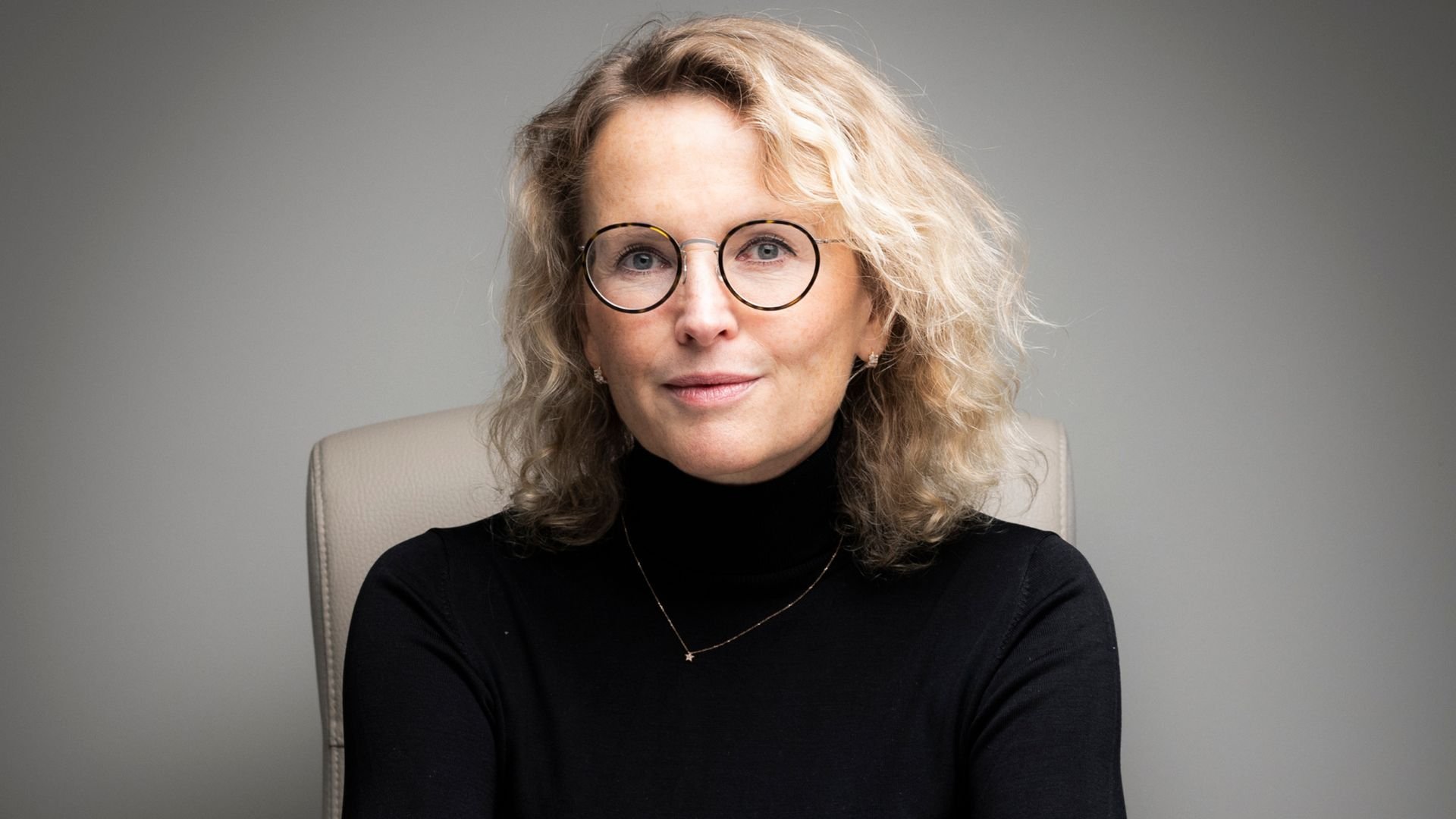Welcome to the Transactions 2020the event at which the most important heads of the Digitization-, Payment– and Banking-industry.
This is a series of interviews with this year’s speakers of the Transactions 2020 – Today, Sven Deglow, CEO of Consorsbank, is making the start.
In the industry, it has long been no secret that the payment and banking organised event Transactions goes into the second round on November 19th! After the big Success of the past year this year again we are pitching the tents in Offenbach near Frankfurt/Main.
At the event the most important heads of the digitization, payment– and Banking-industry. Besides the many great participants, an event is only as good as its speakers on stage. The Transactions is one of the few interdisciplinary conferences in the DACH region that offers a stage for lateral thinkers from various industries on the topic of „digital structural change“. We are once again looking forward to national and international stars from the digital business who will give an outlook on the most important trends in the industry.
Who these great minds are who are significantly involved in shaping the TRX20 can be read in our interview series over the weeks.
This year’s participants include Sven Deglowwho introduces himself in this interview. He discusses on the panel: preaching water, drinking wine. How much responsibility does our industry bear?
We are happy about your acceptance for Transactions 20 in November: Please introduce yourself briefly.
My name is Sven Deglow. I look back on more than ten years of experience in the online banking world. Since 2019 I have been CEO of Consorsbank. Before that, I was on the board of directors of Comdirect and McKinsey, among others. I have recently moved to Munich with my family and regularly commute back and forth between our offices in Nuremberg, Munich, Frankfurt and – due to Corona – my home office.

Since when have you been dealing with the topic of your panel and why are you enthusiastic about it?
Sustainability, diversity and the fight against exclusion and racism have long been deeply rooted in the DNA of our parent company BNP Paribas. And thus, of course, also with us at Consorsbank. When I look at current social developments, especially in the USA but also here in Europe, the topic does not leave me cold, even as a private individual. It is more important than ever to take a clear stand and to stand up against the exclusion of people, for more justice and sustainable economic activity and life;
What expectations do you have as a speaker for the upcoming TRX?
I am looking forward to meeting old friends and getting to know new, interesting people. And I wish for an unbiased and self-critical exchange.
The TRX takes place for the second time: What relevance did the event have for you or the industry?
I would say: Let’s wait for the second serve. The first one was definitely already placed in the field. Given the quality of the established events „Banking Exchange“ and „Payment Exchange“ from Payment & Banking but I’m not worried.
Adapted to the situation, this year’s TRX will take place for the first time as a hybrid format. What experiences have you had so far with such digital event formats?

We held the last two town hall meetings at our company, one hybrid with mixed on-site and digital presence of colleagues and the other fully digital. We have also had good experience with virtual customer events. Business is also going well virtually, both technically and factually. But it remains the same: the immediate feedback of a live event and contact with people is unfortunately difficult to replace digitally.
What questions would you like to ask your fellow panelists yourself?
What experiences have you had with measuring sustainability? Do your customers ask about it and do they actually reflect this in their behaviour?
The TRX takes place in Offenbach. Why should FinTech also be an issue beyond the big hubs?
New ideas are born where well-trodden paths are sometimes abandoned.
Looking back over the year – what has changed massively in your particular sphere of influence? Which of these is positive, which negative?
Probably like most: the daily work in the company. A positive aspect was and is how quickly and almost smoothly the changeover from presence to remote operation worked. I am also pleased that we have been able to acquire many new and above all young customers and that interest in investing in shares and funds has increased noticeably. Above all, I am also pleased that mobile use has achieved a sustainable breakthrough. What is unfortunately somewhat missing are spontaneous contacts without a prior Skype appointment and face-to-face conversations or exchanges at the coffee machine or in the canteen.







